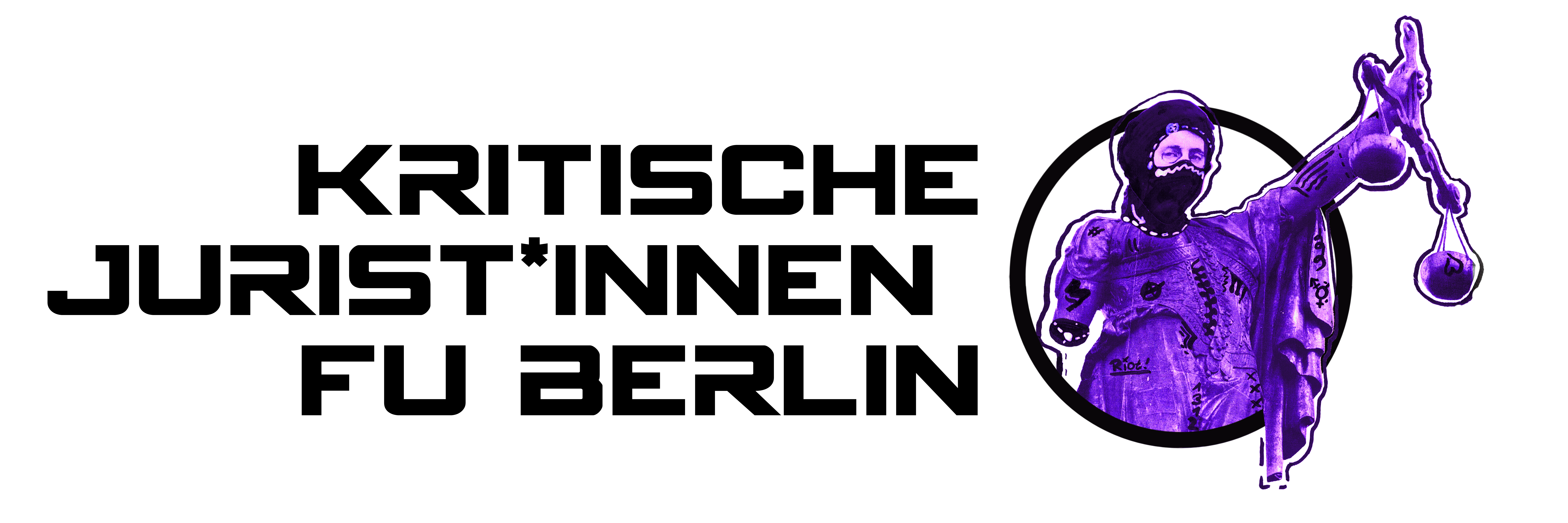Ersatzfreiheitsstrafe – What is it?
Ersatzfreiheitsstrafe (imprisonment in default of fine) is now the most common form of imprisonment in Germany. It is a prison term for people who do not pay their fines imposed by the court.
Every year, more than 50,000 people are imprisoned in this way in Germany. This is because they can’t pay, not because they don’t want to pay.
Many of these people have been convicted of minor offenses, often related to poverty, i.e. driving without a valid ticket or stealing food. These cases are considered “minor” because in over 90% of the cases, the people involved were sentenced to fines of three months’ pay or less.
The people imprisoned through an Ersatzfreiheitsstrafe have never been sentenced to prison, only to a fine.
Fines often result from racist and classist policing: Police disproportionately stop racialized people and those read as poor and charge them with minor offenses.
The law upholds and further entrenches this inequality: those who can pay their fine pay it. Those who can’t pay have to go to jail.
Help us fight this unjust system!
news
FAQ
Instead of punishing people for their poverty or addictions, the underlying socio-economic issues have to be addressed. An unconditional basic income or free public transportation are much more likely to meet the basic human needs behind offenses than additional punishment. Locking people up is wrong and should under no circumstances be relegated to an automated process. In general, a deeper discussion is warranted around why certain acts are criminalized and why punishment is accepted as a way to address socio-economic problems.
EFS predominantly affects (about 80%) people who live at or below the subsistence level. Their financial hardship is the very reason they are in a position where they cannot afford to pay for certain services (e.g. a ticket for public transport). EFS terms are primarily imposed for repeated fare evasion, for shoplifting, or for violations of the Narcotics Act (possession and sale of drugs). A small proportion of people serving EFS terms are in jail for politically motivated offenses.
It is difficult to determine how many people end up in prison each year because of EFS. Prisoner statistics are collected annually on a reference date and suggest for 2017 that approximately 11% of prisoners in Germany were serving an EFS. The share of EFS among total prison terms has steadily increased over the last 15 years. However, since EFS often last only a few weeks to months, many prisoners are not included in the cut-off date statistics, so that a much higher total number must be assumed. Exact figures are apparently no longer collected at all (cf. Thurm 2016).
Yes, serving an EFS term means having a criminal record – but so does having been sentenced to a fine and paying it. Whether or not the person sentenced to a fine goes to jail does not make a difference with regards to their criminal record. All convictions appear in the “Bundeszentralregister Strafen” (Federal Central Register of Convictions) and are usually included in further proceedings. However, a previous conviction does not appear in the police record as long as it is the first entry and it does not exceed 90 daily sentences.
Besides law and order politicians, for whom no punishment is harsh enough on principle, this pertains especially to companies for whom EFS can serve as a deterrent to protect their economic interests (e.g. transportation agencies).
Ersatzfreiheitsstrafe is a prison term that a person must serve if they do not pay a fine imposed by a court. This means that the poor are automatically punished more severely than the wealthy: Some have to go to jail, which in turn can result in harsh social consequences such as the loss of housing and employment, while others simply transfer the imposed amount.
It is true that Section 40 (2) of the German Criminal Code (StGB) stipulates that the fines be based on the economic circumstances of the person concerned and that the minimum fine be € 1.00. However, judges very often impose higher fines, although approximately 80% of those affected live below the subsistence level. The daily net income is used as a guideline for the daily rate. For a recipient of ALG 2 (Hartz4) daily rates of 10 – 20 euro are computed. A person who already lives at the subsistence level is thereby denied essential basic needs and thus also the right to a decent life.
In principle, there is often the possibility of working off the required fine through so-called “freie Arbeit.” For some people, this option can be tolerable, as it interferes less drastically with everyday life than a stay in prison, and may be subjectively perceived as more meaningful. For many people, however, applying for and completing such work already presents an organizational barrier. (Many EFS prisoners are affected by massive psychological and/or addiction problems). In general, we criticize this practice because it does not solve the problem that poverty is punished. Forcing people to work also penalizes them for not being able to afford certain goods, i.e. for being too poor to legally participate in society. (An additional, legalistic argument against “Arbeit statt Strafe” criticizes the fact that it introduces labor as a type of punishment underhandedly).
The Ersatzfreiheitsstrafe is a great injustice that puts the idea of “equality before the law” into crisis. While some are able to pay their fines, others have to go to jail and are thus also torn from their social contexts. Unequal punishment thereby exacerbates inequality. An additional problem with EFS is its automatic nature: Without any further court ruling, the sentence imposed is automatically transformed from daily rates to be paid into a prison term to be served. The money spent on the prison system could also be used to finance much more sensible measures, such as issuing more social tickets for public transport. A day in prison costs the state between €120 and €150. For fare evasion, 20 to 40 daily fines are imposed. This results in costs of between €2,400 and €6,000 per ESF, while the original financial damage (loss of revenue) for the transport companies amounts to less than €10.






